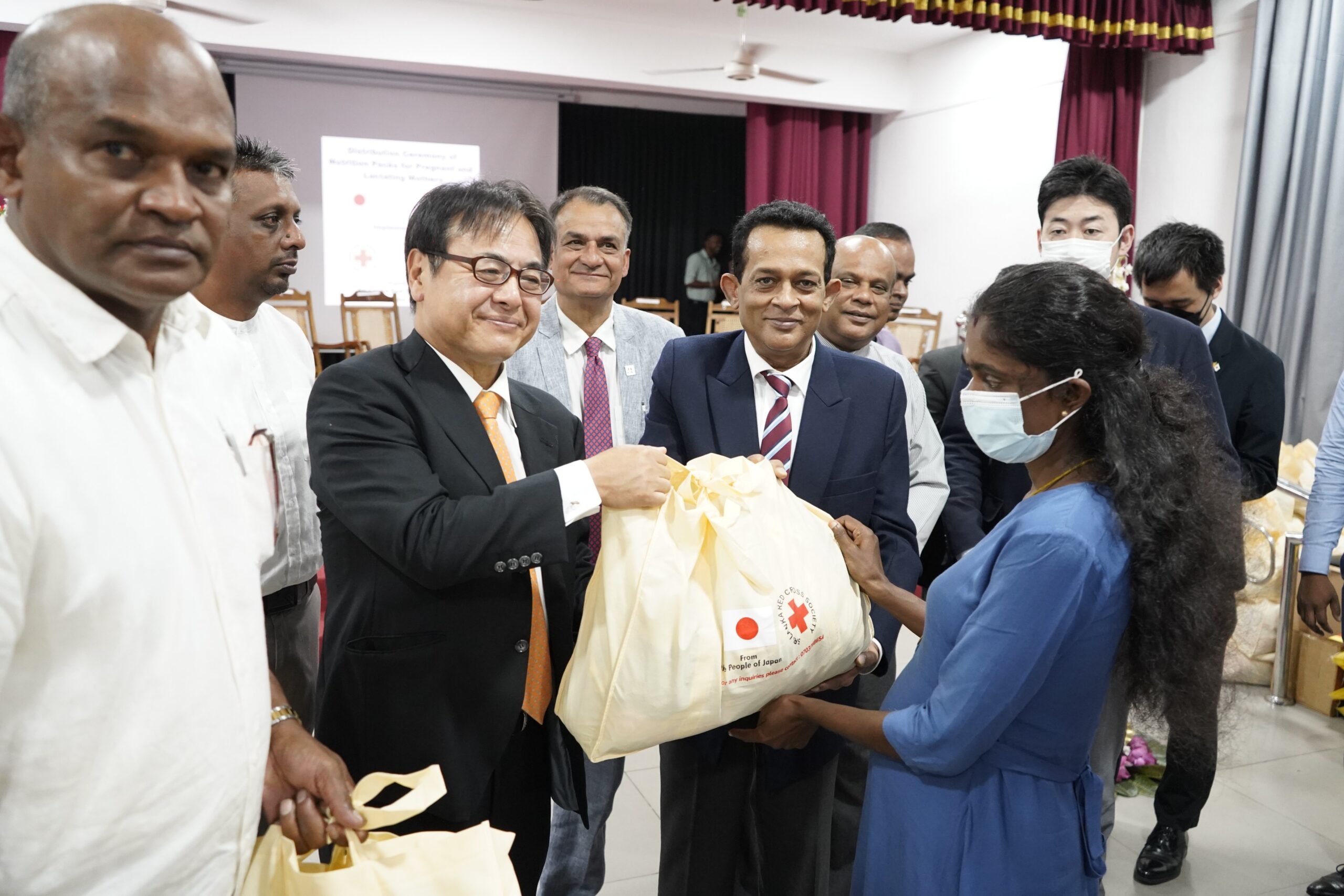Japan donated $1 million to IFRC for support the nutritional needs of low-income families
The Government of Japan has donated 1 million USD to the International Federation of Red Cross & Red Crescent Societies (IFRC) initiated “Complex Emergency Appeal” on behalf of the Sri Lanka Red Cross Society (SLRCS) back in September, which aims at raising 28 million Swiss Francs to assist half a million households in Sri Lanka.
The funds granted by the Japanese Government will support the nutritional needs of low-income families, address their livelihood situations and assist them in managing their water, sanitation & hygiene issues, particularly the menstrual hygiene issues of female school children.
The first programme under this support took place in Kolonnawa today under the patronage of H.E the Ambassador of Japan Mizukoshi Hideaki, Chairman of SLRCS Jagath Abeysinghe, Additional Secretary of the Ministry of Health Dr Sunil De Alwis, Regional Director of Health Dr Chandana Gajanayake, the Divisional Secretary of Kolonnawa Mr M. A. P Jayakody, and Head of Country Cluster South Asia of IFRC
Mr Udaya Regmi.
A single nutritional pack provided to pregnant mothers contains 5kg of rice, 1kg of dhal, 500g dry sprats, 500g of soya meat, 1kg of green grams, 1liter of coconut oil, 1kg of yahaposha, 1kg of chickpeas. The Japanese assistance also aims to cover a total of 76,000 people living in all provinces of the island.
Which also includes 15,000 pregnant mothers. The project will also aim at providing sanitary napkins for adolescent school girls. It will distribute 5000 dry ration packs for low-income families, especially at children’s homes, elder homes and homes for differently able individuals.
The President of the Sri Lanka Red Cross Society, Jagath Abeysinghe, lauded the Japanese Government for their assistance and expressed his gratitude to the people of Japan. “This action by the Government of Japan is a stellar example of how friends help friends in their hour of need. I cannot express my gratitude to the people of Japan for their generosity and support at this challenging time for our nation.
Sri Lanka will overcome these challenges because we have friends like the people of Japan, who
continue to help us.”
The current overall emergency appeal, with the support of the IFRC and many National Societies worldwide, aims to provide livelihoods and basic needs assistance, as well as safe drinking water and hygiene services, to 500,000 of the most vulnerable.

